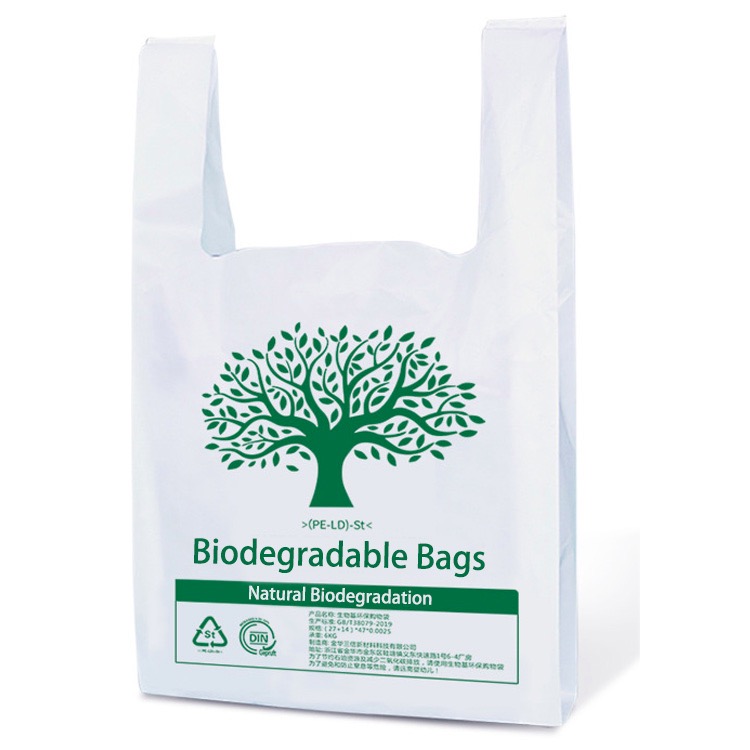Traditional plastic bags contribute significantly to environmental pollution, taking hundreds of years to decompose. Manufacturers make compostable bags from plant-based materials, like cornstarch. They break down into natural elements in just a few months. This process leaves no toxic residue.
This switch not only minimizes landfill waste but also enriches compost quality when used correctly.Free the Ocean+1Inbulks+1
Exploring Different Sizes of Compostable Bags
Selecting the right size of compostable bags is crucial for efficient waste management. Here’s a breakdown of various sizes and their ideal uses:
| Bag Size | Capacity | Ideal Use Cases |
|---|---|---|
| 1 Gallon | 3.8 Liters | Small countertop bins for daily food scraps |
| 3 Gallon | 11.4 Liters | Kitchen compost bins, suitable for small households |
| 5 Gallon | 19 Liters | Medium-sized bins, accommodating more substantial waste |
| 13 Gallon | 49.2 Liters | Standard kitchen trash cans for regular household waste |
| Large Bags | 30+ Gallons | Yard waste, outdoor events, or large family needs |

1 Gallon Compostable Bags
Ideal for small countertop compost bins, 1-gallon bags are perfect for daily food scraps. Their compact size encourages frequent disposal, reducing odors and maintaining kitchen hygiene.亚马逊
3 Gallon Compostable Bags
A popular choice for kitchen compost bins, 3-gallon bags strike a balance between capacity and convenience. Brands like BioBag offer certified compostable options that fit most countertop pails. Target : Expect More. Pay Less. Amazon+1Amazon+1
5 Gallon Compostable Bags
For households generating more organic waste, 5-gallon bags provide additional capacity without being cumbersome. They’re suitable for medium-sized bins and can handle increased waste volumes.
13 Gallon Compostable Bags
These bags are designed for standard tall kitchen trash cans, accommodating regular household waste. Products like the Compostable Tall Kitchen Garbage Bags from Free the Ocean use plant-based materials. They are also BPI certified.
Target : Expect More. Pay Less.+3Free the Ocean+3Inbulks+3
Large Compostable Bags
For yard waste or larger-scale needs, bags exceeding 30 gallons are available. They are sturdy enough to handle substantial waste, making them ideal for outdoor cleanups and events.
Certifications and Standards
When selecting compostable bags, it’s essential to look for certifications that ensure the product meets industry standards for compostability:
- BPI Certification shows that the bag meets ASTM D6400 standards. This means it is compostable in industrial facilities.
- OK Compost HOME: Certifies that the bag is suitable for home composting environments.


For example, Holy Scrap! 13 Gallon Compostable Trash Bags have the OK Compost HOME logo. This means they break down well in home compost systems. GoSupps+1Inbulks+1

Practical Considerations
Storage: Store compostable bags in a cool, dry place to prevent premature degradation.
Durability: While designed to decompose, quality compostable bags are sturdy enough to handle typical household waste without tearing.
Usage Timeline: Use the bags within a year of purchase to ensure optimal performance.
My Personal Experience
Transitioning to compostable bags has been a rewarding journey. Initially, I was concerned about their durability, but reputable brands have proven to be both sturdy and reliable. The environmental benefits are clear.
I feel proud that my household helps reduce plastic waste. Moreover, using these bags has streamlined our composting process, making it more hygienic and manageable.news

Addressing Common Concerns
Cost: Compostable bags can be slightly more expensive than traditional plastic bags. However, the environmental benefits and potential for improved compost quality justify the investment.卫报
Availability: With growing environmental awareness, compostable bags are becoming more widely available both online and in retail stores.
Composting Facilities: Ensure your local composting facility accepts compostable bags, as some may have specific guidelines.
Conclusion
Switching to compostable garbage bags is a simple yet impactful step toward sustainable living. By picking the right size and getting the right certifications, you can manage household waste well and help the environment.

Quiz: Test Your Knowledge on Compostable Bags
- What material are most compostable bags made from?
- A) Plastic
- B) Cornstarch
- C) Metal
- D) Glass
- Which certification indicates a bag is suitable for home composting?
- A) BPI Certification
- B) OK Compost HOME
- C) ASTM D6400
- D) FDA Approval
- What is the typical capacity of a standard kitchen trash can?
- A) 3 Gallons
- B) 5 Gallons
- C) 13 Gallons
- D) 30 Gallons
- How should compostable bags be stored to maintain their integrity?
- A) In a humid environment
- B) In direct sunlight
- C) In a cool, dry place
- D) In the refrigerator
- What is a potential benefit of using compostable bags?
- A) Increased plastic waste
- B) Longer decomposition time
- C) Reduction in landfill waste
- D) Higher cost
Answers:
- B) Cornstarch
- B) OK Compost HOME
- C) 13 Gallons
- C) In a cool, dry place
- C) Reduction in landfill waste
Using compostable bags in your daily life helps the planet. It also supports better waste management practices.

